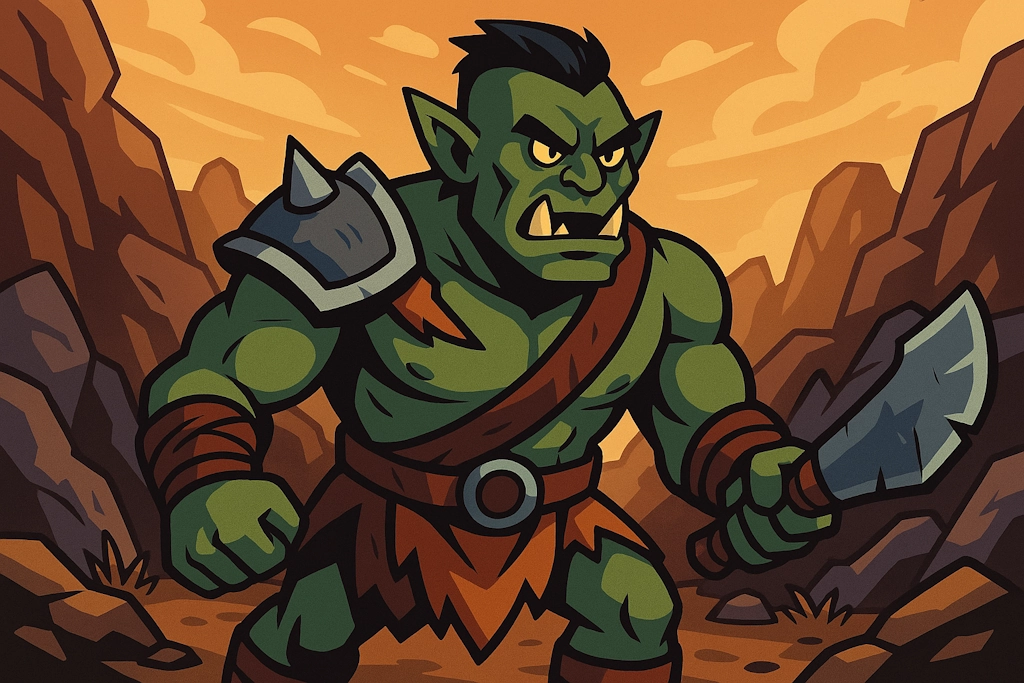♀️Orcs Names(Female)
Generate authentic-sounding orc names for your fantasy world, inspired by various fantasy traditions, including elements from popular franchises like Warhammer, Warcraft, and The Elder Scrolls. Names feature harsh consonants and strong syllables reflecting orcish warrior culture.
Choose your style:

Orcs Names
Generate authentic-sounding orc names for your fantasy world, inspired by various fantasy traditions, including elements from popular franchises like Warhammer, Warcraft, and The Elder Scrolls. Names feature harsh consonants and strong syllables reflecting orcish warrior culture.
Example Orcs Names
Get inspired by these sample results
- Moglugbulroddi Gradurog
- Shagdub Gradulob
- Ulgabek Graboglar
- Orlugash Grabogamakh
- Bulak Graburzag
- Gugarabgrub Grashura
- Agrulla Grashatur
- Razgak Grashazog
- Orghai Grashargakh
- Gharol Granogremor


